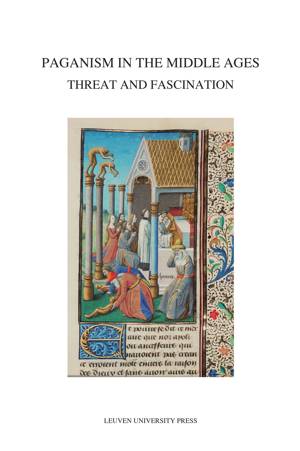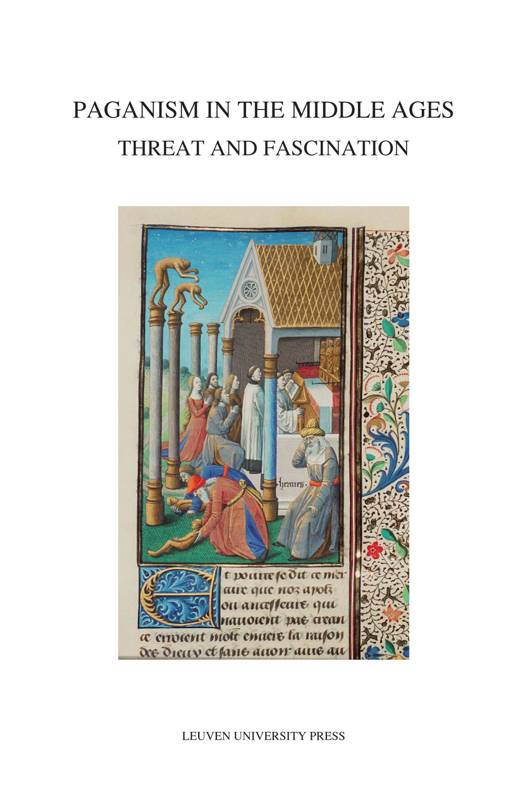
- Afhalen na 1 uur in een winkel met voorraad
- Gratis thuislevering in België vanaf € 30
- Ruim aanbod met 7 miljoen producten
- Afhalen na 1 uur in een winkel met voorraad
- Gratis thuislevering in België vanaf € 30
- Ruim aanbod met 7 miljoen producten
Zoeken
Paganism in the middle ages E-BOOK
threat and fascination
€ 44,50
+ 44 punten
Omschrijving
Interdisciplinary study of pagan culture from late antiquity to the emergent Renaissance.
In this volume the persistence, resurgence, threat, fascination, and repression of various forms of pagan culture are studied in an interdisciplinary perspective from late antiquity to the emergent Renaissance. Contributions deal with the survival of pagan beliefs and practices, as well as with the Christianization of pagan rural populations or with the different strategies of oppression of pagan beliefs. The authors examine problems raised by the encounter with pagan cultures outside the Muslim world and show how philosophers contrived to 'save' the great philosophers and poets from ancient culture notwithstanding their paganism. The contributors also study the fascination of classic 'pagan' culture among friars during the fourteenth and fifteenth centuries and the imitation of pagan models of virtue and mythology in Renaissance poetry.
Contributors:
Carlos Steel (University of Leuven), John Marenbon (Trinity College, Cambridge), Ludo Milis (University of Ghent), Marc-André Wagner † (Paris, Ministère de la Culture), Brigitte Meijns (University of Leuven), Rob Meens (University of Utrecht), Edina Bozoky (Université de Poitiers), Henryk Anzulewicz (Albertus-Magnus Institut, Bonn), Robrecht Lievens (University of Leuven), Stefano Pittaluga (Università di Genova), Anna Akasoy (Ruhr-Universität Bochum)
In this volume the persistence, resurgence, threat, fascination, and repression of various forms of pagan culture are studied in an interdisciplinary perspective from late antiquity to the emergent Renaissance. Contributions deal with the survival of pagan beliefs and practices, as well as with the Christianization of pagan rural populations or with the different strategies of oppression of pagan beliefs. The authors examine problems raised by the encounter with pagan cultures outside the Muslim world and show how philosophers contrived to 'save' the great philosophers and poets from ancient culture notwithstanding their paganism. The contributors also study the fascination of classic 'pagan' culture among friars during the fourteenth and fifteenth centuries and the imitation of pagan models of virtue and mythology in Renaissance poetry.
Contributors:
Carlos Steel (University of Leuven), John Marenbon (Trinity College, Cambridge), Ludo Milis (University of Ghent), Marc-André Wagner † (Paris, Ministère de la Culture), Brigitte Meijns (University of Leuven), Rob Meens (University of Utrecht), Edina Bozoky (Université de Poitiers), Henryk Anzulewicz (Albertus-Magnus Institut, Bonn), Robrecht Lievens (University of Leuven), Stefano Pittaluga (Università di Genova), Anna Akasoy (Ruhr-Universität Bochum)
Specificaties
Betrokkenen
- Uitgeverij:
Inhoud
- Aantal bladzijden:
- 250
- Taal:
- Engels
- Reeks:
Eigenschappen
- Productcode (EAN):
- 9789461661173
- Verschijningsdatum:
- 14/04/2017
- Uitvoering:
- E-book
- Beveiligd met:
- Digital watermarking
- Formaat:

Alleen bij Standaard Boekhandel
+ 44 punten op je klantenkaart van Standaard Boekhandel
Beoordelingen
We publiceren alleen reviews die voldoen aan de voorwaarden voor reviews. Bekijk onze voorwaarden voor reviews.










